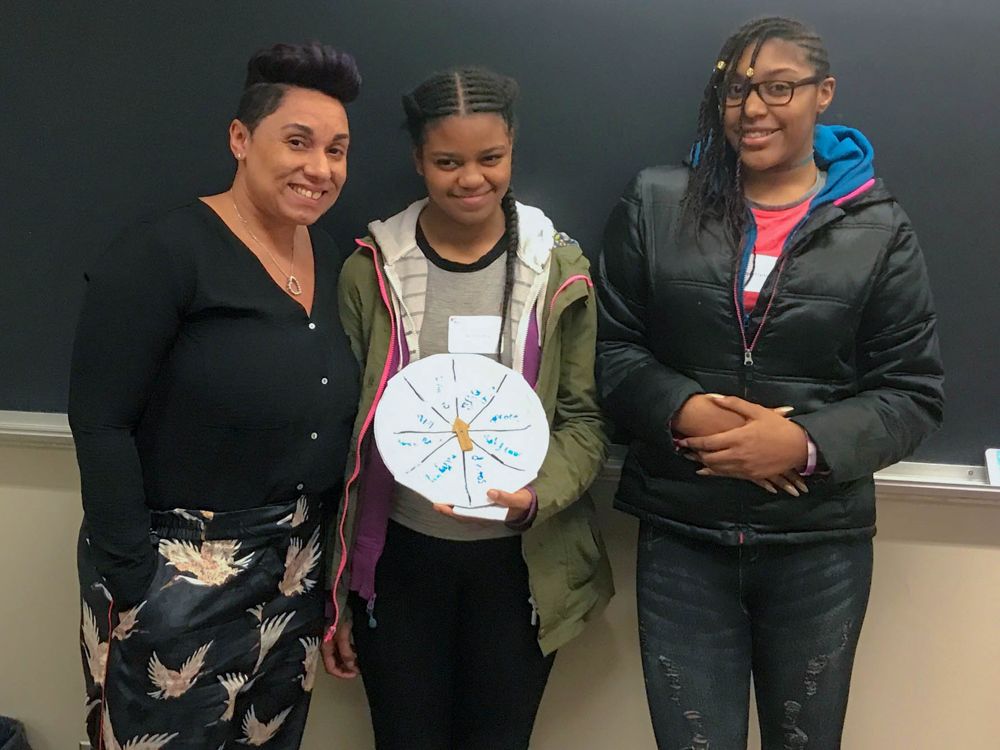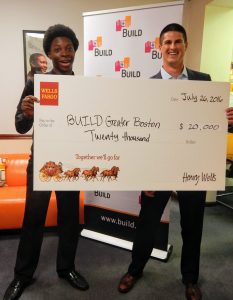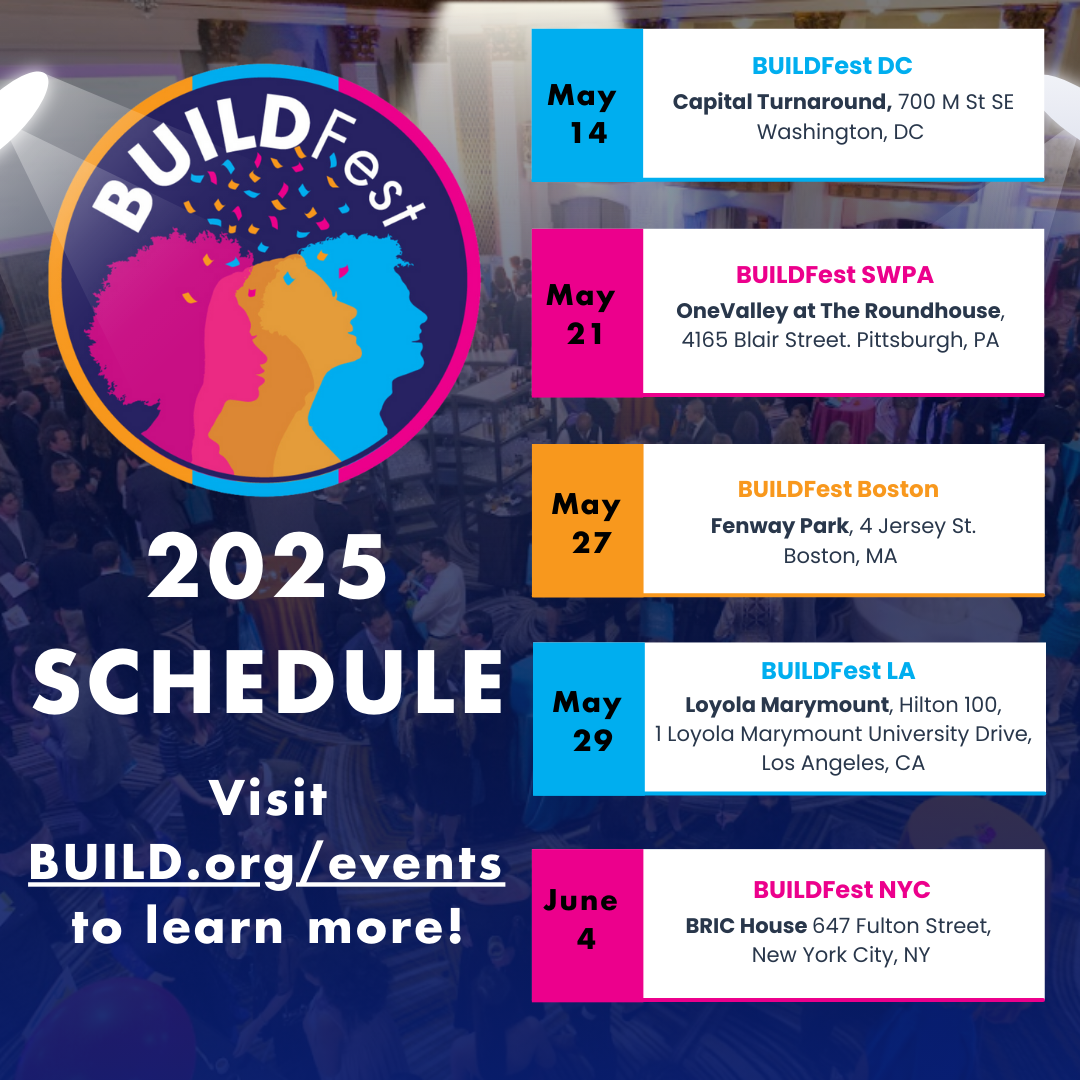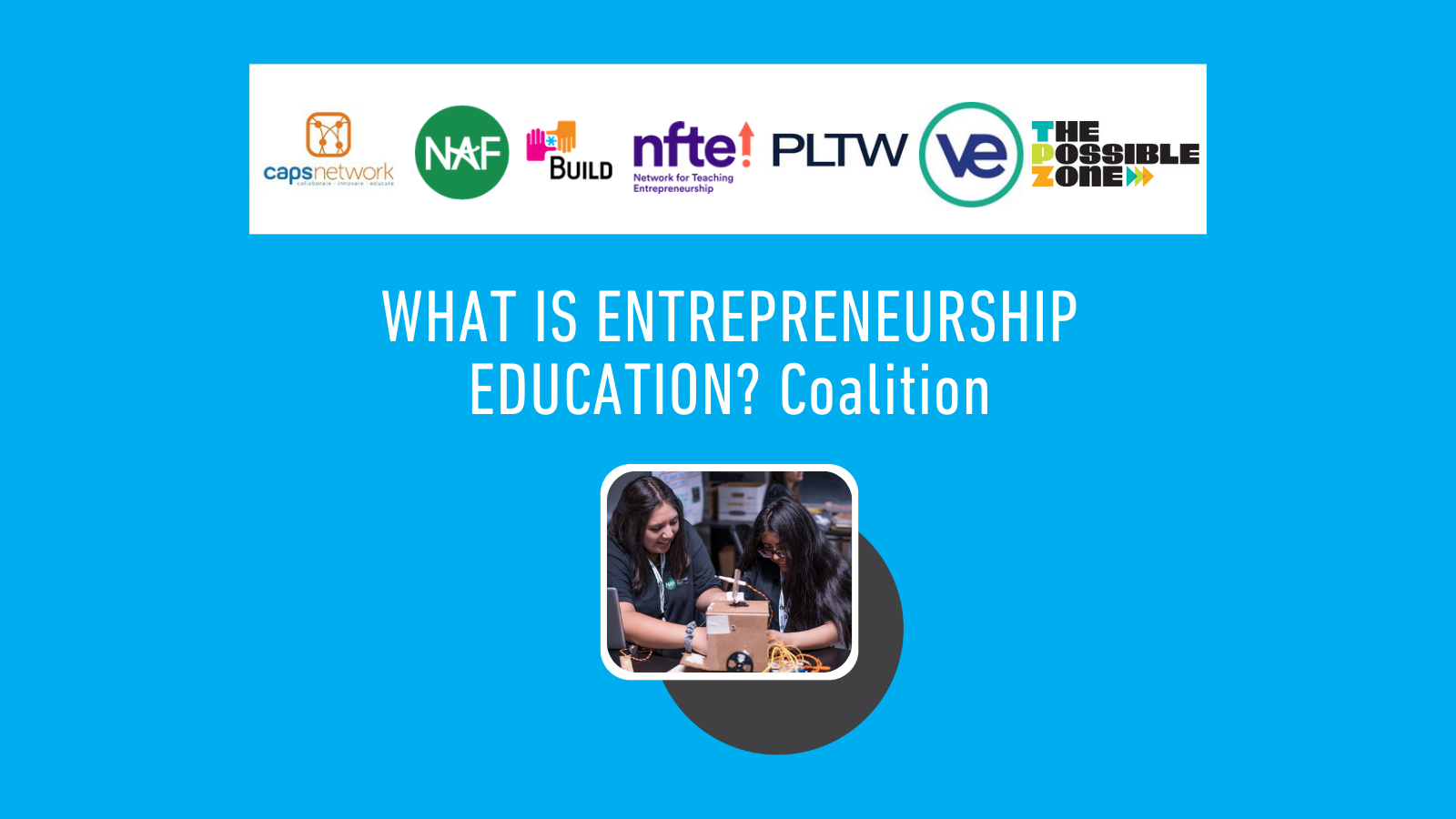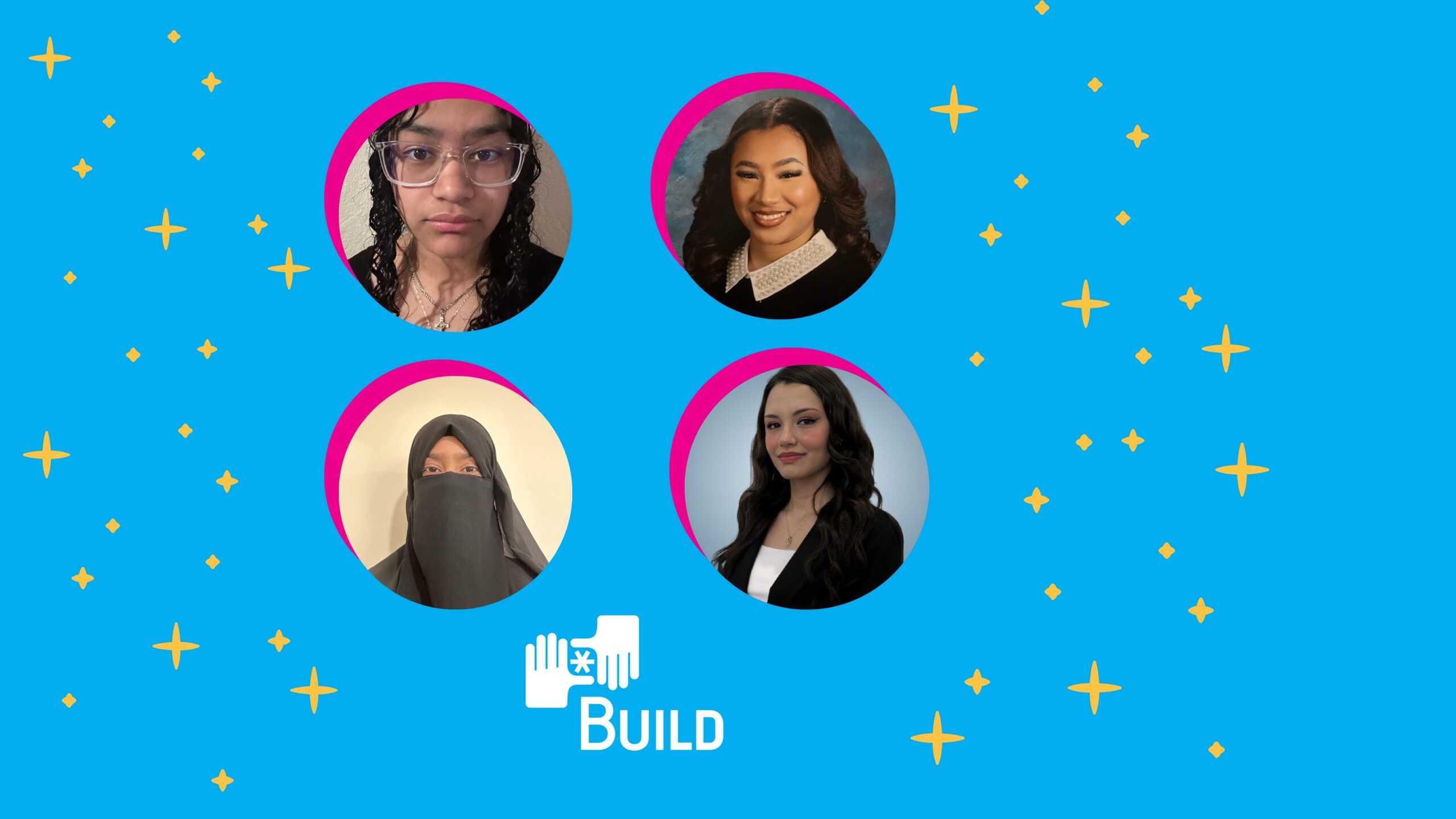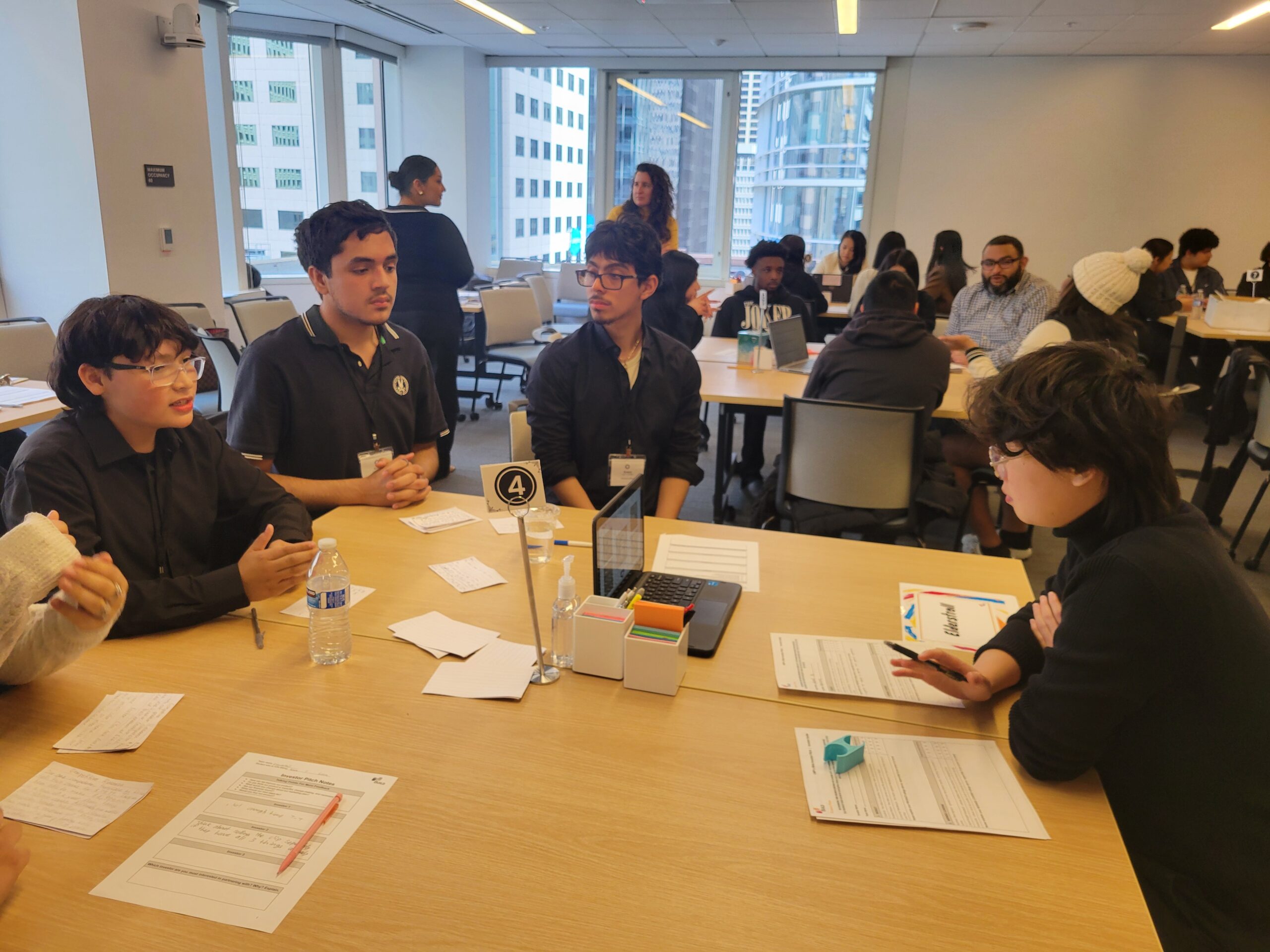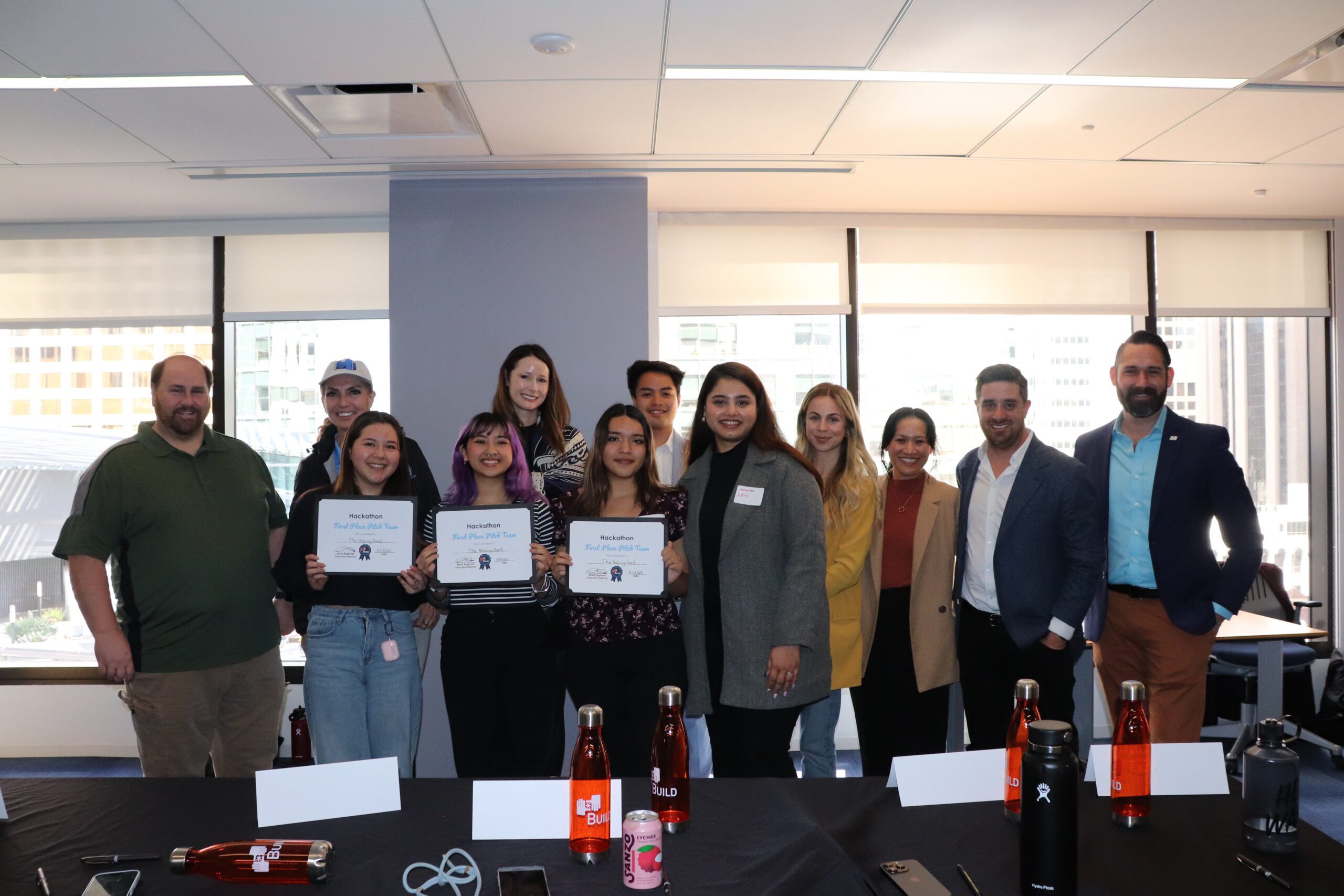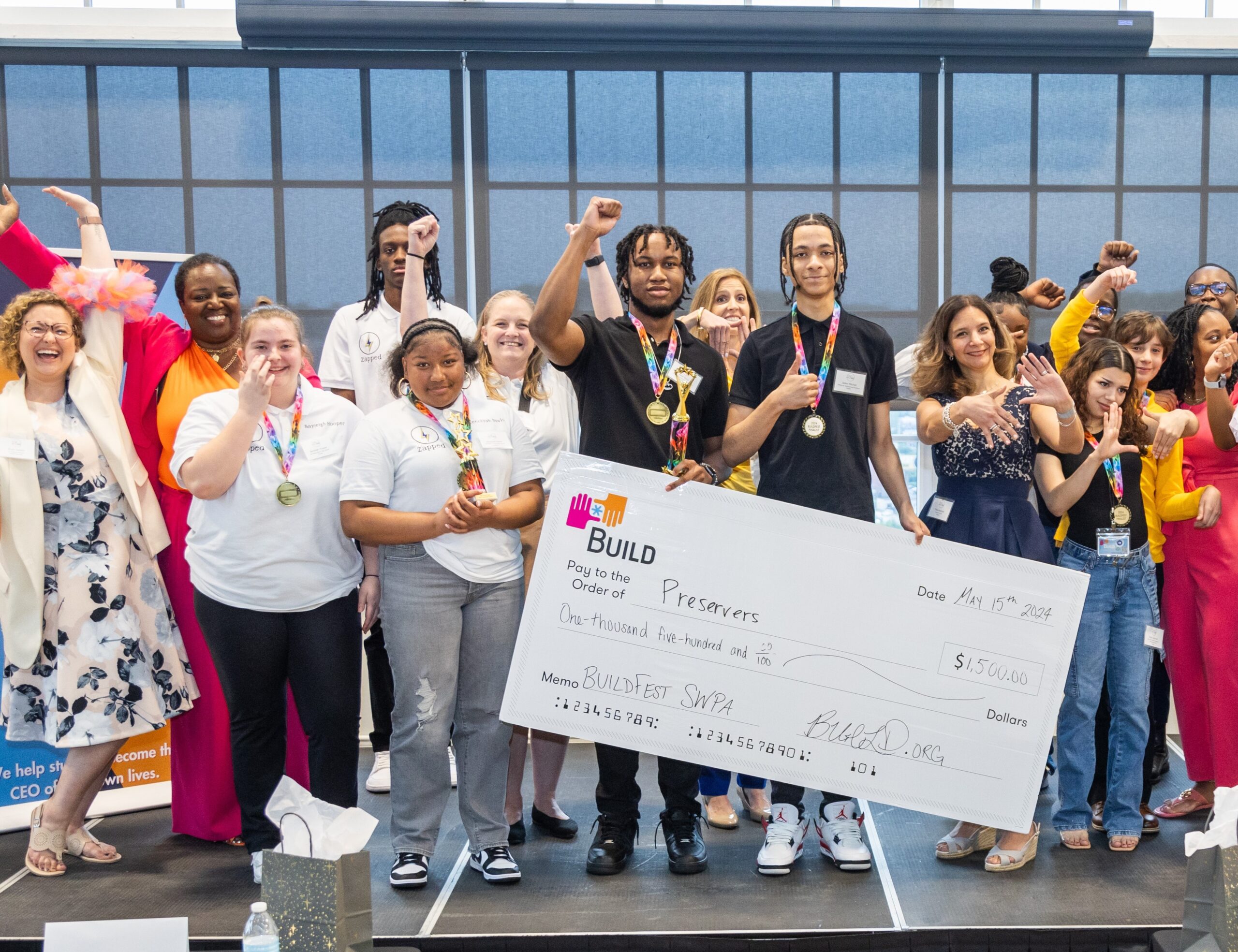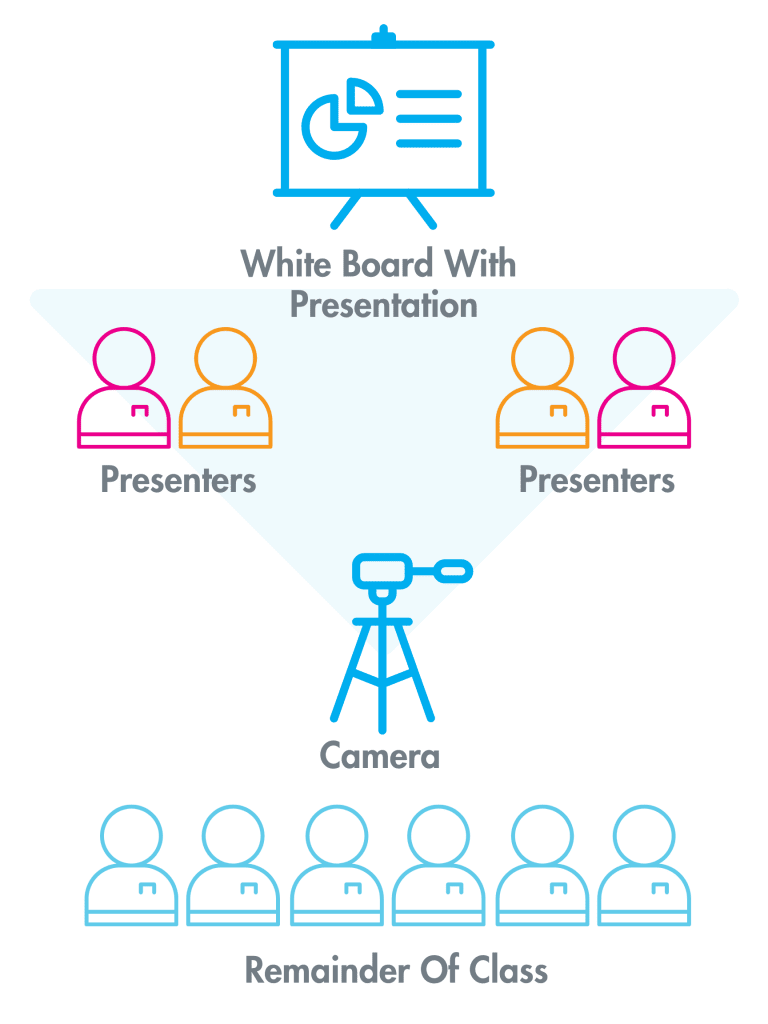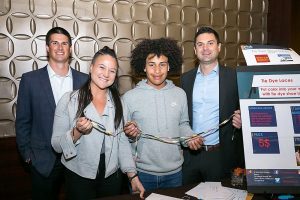
Meet the Wells Fargo BUILD Mentoring team. Matt Sands, Matt Maclay, Erica Gentili, and Tiffany Ormon head up a great example of one our unique mentoring formats. The group mentoring program at BUILD allows co-workers to engage with the Greater Boston community in a way that fosters teamwork and growth between mentor and mentee groups. All locals to the Greater Boston area, the Wells Fargo team has been involved with BUILD in a variety of ways, be it mentoring, hosting our students for mock interviews, or participating in our annual BUILDfest.
Mentoring with BUILD means taking the time to get to know your group of students. A concern that many mentors may have while going into the mentoring process is the time commitment. The group concept offers a chance for mentors to participate at a more varied capacity. Sands spoke on how this was a part of what inspired him to take the next step into mentoring.
“We were a little bit nervous about the time commitment. When BUILD introduced the group concept so that if two can’t make it, two others could go, it made it a lot more feasible for us.” he said.
Maclay agreed, “That part’s been really helpful for us.” he said, noting how the level of commitment involved required a lot of teamwork on the part of his group. “We all work and travel and have family commitments so being able to cover for one another has been really helpful.”
Beyond the time commitment, the team’s journey as a group has showcased a lot of development. Sands initially had doubts on his role as a mentor and how he could contribute.
“Am I the best person to help students with that?” he said he’d asked himself, when describing how he grew into his role as a mentor. However, he encouraged potential mentors with similar concerns to know that each mentor had a unique skill set to offer.
Gentili also shared these concerns, particularly in the business aspect. “I was nervous about how I could help them with a business plan because it’s not really what I do. But I learned that it’s basic, anyone could help these kids out.” she said.
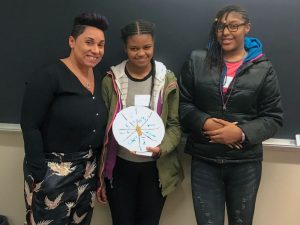
As for Ormon, she realized that beyond the business and entrepreneurship aspect, being there for the kids helped build an important relationship. Her experience as a mentor differed slightly from those of the rest of her team in that she was asked to individually mentor a smaller group of two students. This allowed her to more accurately see the connection that presence and consistency made in her students’ BUILD experiences.
“The consistency and the fact that the kids seem to rely on you and trust you and really build a relationship where they know they’ve got folks in their corner. It’s hard for them and it’s also hard for us and we depend on each other to make the experience the best it can be. The kids are already challenged with doing something out of the box and out of their wheelhouse. So having folks who believe in them and consistently support them is really what makes or breaks the team.” Ormon said.
MacClay also spoke to the development of this relationship and how that changed the perspective he had on mentoring. “As you develop a rapport with these kids, as you spend more time with them and even become friends, you really become so invested in them and the success of the team and the product. And for the competitive side of things, I think we all really got involved in it.” he said.
As the mentors themselves got more invested, they realized how it reflected how invested the students were as well. For Gentili, this was a highlight of her mentorship experience.
“And that’s one of the best parts, seeing them get engaged and be excited. It was great to see them win and make money.” she said, speaking to the first pitch she experienced with her students.
“It was kind of amazing.” Ormon agreed. “With all of that, when they executed and walked away profitable. It almost blew their minds, like ‘did we just do that?’ To see them have that moment makes all the challenges worth it.”
These were a few of the ways in which the mentors were able to see the impacts of their guidance and relationship with the students. Sands noted how the small, more intimate moments were one of the most important pieces of evidence in showing the impact that BUILD mentors had.
“I think it’s kind of hard to see the direct impact of what we do as mentors,” he said, “But I think you certainly see it in the classroom, from day one to the end of the year. I think you get the feeling that you’re actually making an impact when the kids become a little more engaged, when they think differently about school and academics.”
The Wells Fargo mentors only represent one part of the way Wells Fargo supports our young entrepreneurs. Wells Fargo is a regular sponsor of the Entrepreneur Games and the BUILDFest Pitch Challenge and BUILD has been selected as a recipient of community grants from Wells Fargo. We are proud to partner with them in our mission to support a path to success for our young people.
